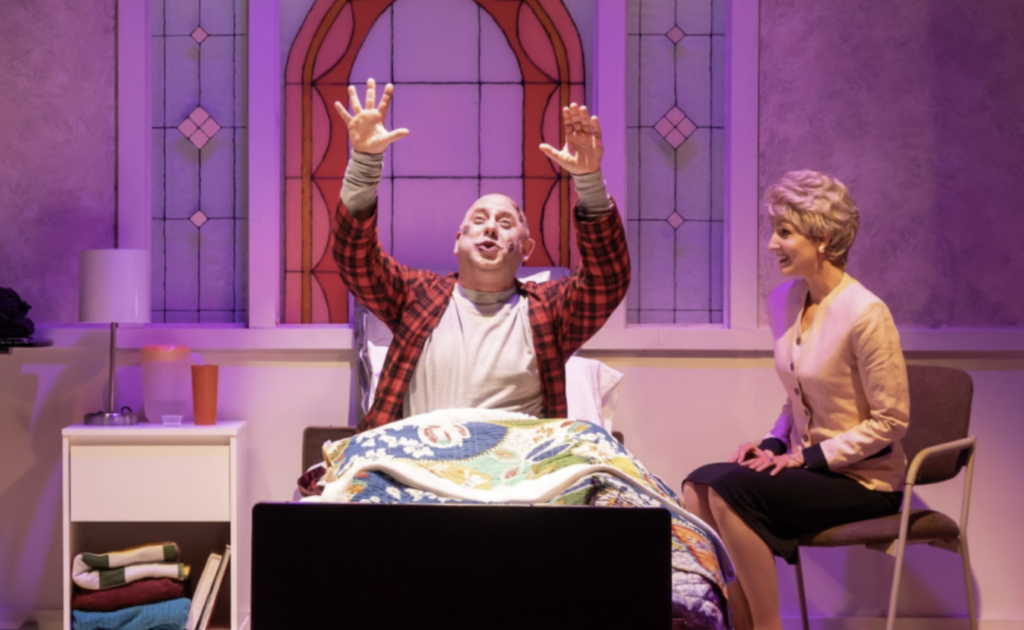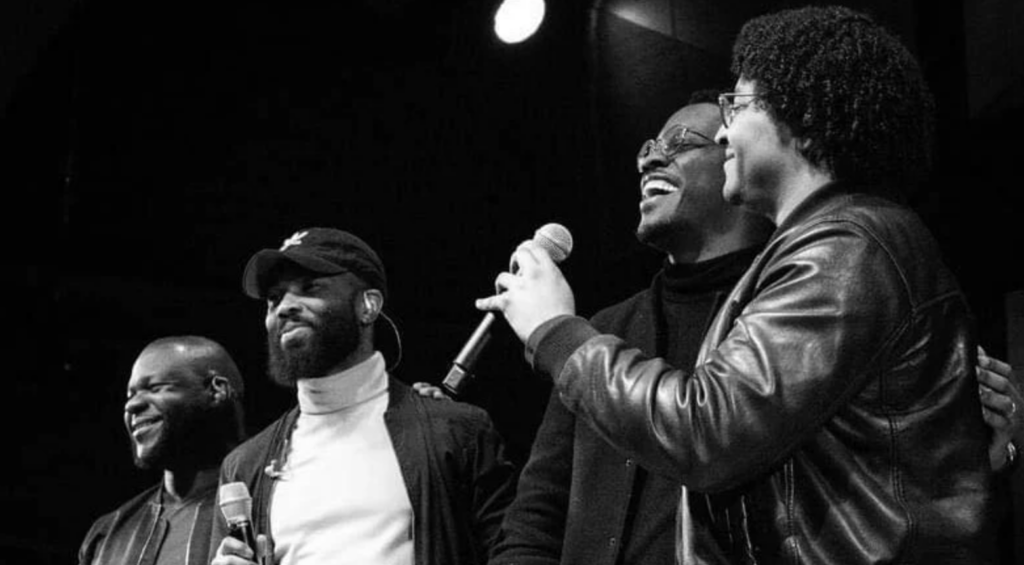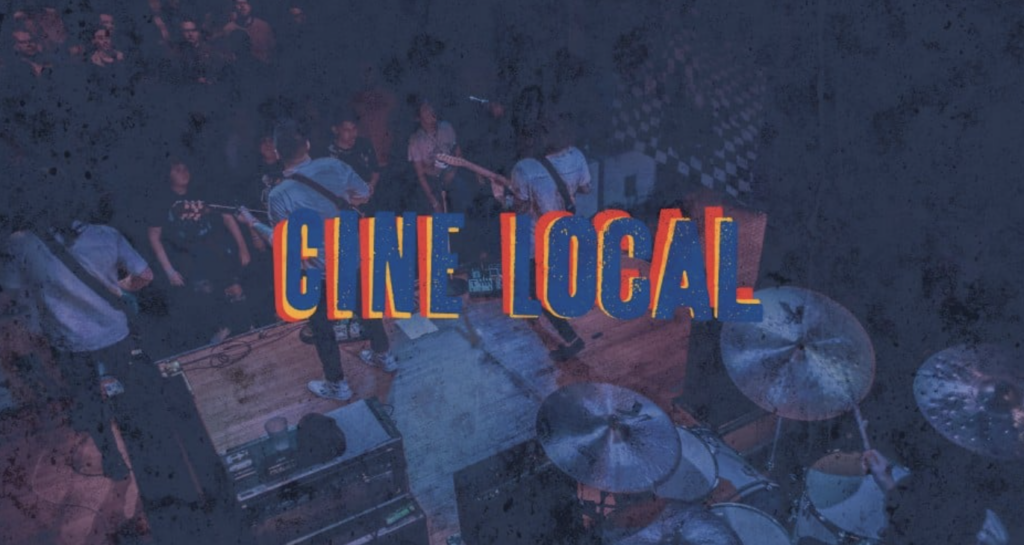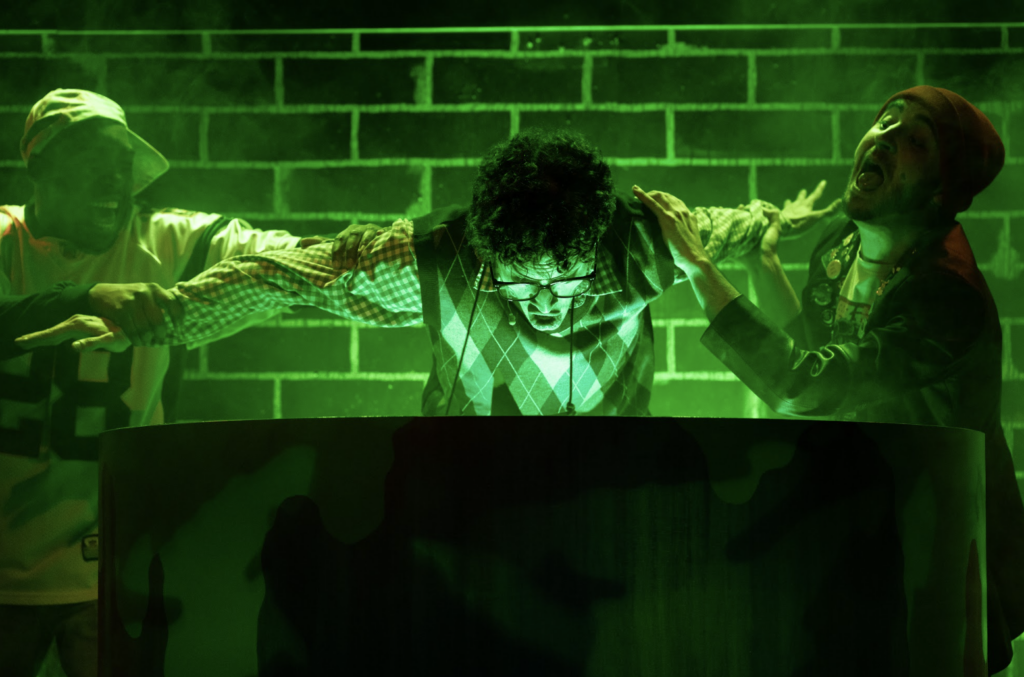Blondshell talks Freaky Friday, covering songs, and Notes app ahead of KC headlining debut
Like an offhand snapshot archiving a specific moment in spectacular detail—including its imperfections—Sabrina Teitelbaum, aka Blondshell, shoots from the hip as a songwriter to craft her style of deeply emotional confessional anthems.
“I don’t have any sort of ritual in terms of where I write or how I write,” Teitelbaum said in an interview with The Pitch. “Like, some people are always like, ‘Oh I need to have a candle, and I need to be in this room.’ For me, it has to be as everyday and unimportant as possible. It has to be like, so casual. Not a big event.”
Her approach may come as little surprise for those who have belted along to cathartic choruses like those in “23’s a Baby,” “What’s Fair,” and “He Wants Me.” With refined sensibilities in guitar music and pop providing emotional weight, Teitelbaum’s songwriting delivers gut-punch moments with a sense of humor and conversational, cut-to-the-chase lyrics. Further listens reveal the impressive vocal performances and tasteful support from producer Yves Rothman, whose eclectic roster of collaborators include Yves Tumor, Hana VU and Bartees Strange.
“Guitar is important to me, but being a singer and an actual vocalist and studying singing my whole life, that has been actually the most important thing for me,” Teitelbaum said. “I have always thought of myself as a singer before being a songwriter, even.”
Blondshell released If You Asked for a Picture in May, and is visiting The Truman on Nov. 17 in support of her second album in as many years.
One week prior to her headlining debut in KC, Blondshell will have released Another Picture, a companion to If You Asked…, featuring covers from Conor Oberst, Samia, and Folk Bitch Trio, as well as features from Gigi Perez and John Glacier.
The Pitch caught up with Teitelbaum ahead of Blondshell’s Monday, November 17, show at The Truman.
The Pitch: Another Picture comes out right before our show. I wondered how that project came into fruition. Were these artists you knew personally?
Sabrina Teitelbaum: Yeah, most of them. I met Folk Bitch Trio recently. Samia, I’ve known for many years. John Glacier, I’m just a fan of, so we just reached out because she put a record out this year [Like a Ribbon] that I’m just obsessed with. And then Conor, also I was just a big fan of. These are people who I was really excited to collaborate with, and my relationship with all of them are different, but it sort of came together piecemeal and it came together really well, so I’m really excited.
I feel like it must have been a little different asking somebody you knew personally than somebody that you were a big fan of or obsessed with their music. How exciting was it when folks you’ve been listening to agreed to collaborate?
I mean, so stoked. That’s the dream, to have artists that you admire cover your song or like, do a feature. It’s so, so awesome.
Speaking of covers, your live performance of “Diet Pepsi” was popular enough to recently hit streaming services. How quickly did you take to Addison Rae’s music? And have you heard Ben Platt’s version?
I took to her music quickly. I like all those songs. “Diet Pepsi” was the first one that I loved and then “Headphones On,” “High Fashion,” like I honestly, I really like the whole thing. And of course, I have heard Ben Platt’s version. He did a beautiful job.
I admire the straightforward, conversational style of your lyrics. How do you physically get the words down? Pen and paper, Notes app?
For me, it’s always Notes app because I need to be able to quickly delete something and add something in its place and see where the rhyme schemes happen and if I were doing pen and paper, for me, it’s taking up time, so I don’t do that. I just use my phone. It’s just an easier process for me on my phone. I do chords and melodies and lyrics and all that at the same time, and it’s really just like instincts, and then I’ll sort of refine the lyrics down from that.
It sounds like the real time, on the fly, nature of it is important.
If I knew that everything I wrote was going to be the final thing, then I would use pen and paper but it’s always changing. And it’s so easy to forget. If you’re just going by instinct and saying a bunch of stuff, it’s really easy to forget what you said if it’s taking time to write it down. So, I also usually have a voice memo going at the same time, and listen back and be like, “Oh yeah, I said this and this, and I like that, and I didn’t like the rest,” and do it again. So yeah, notes and voice memos.
How essential is having a guitar in your hands to your songwriting process?
It’s pretty important. I write at the piano also, but it would be really hard for me to go sit in a room and have someone else play guitar and write over that. Or like, write over a track or something. It’s just not how I write. I think having a guitar makes it feel casual. I don’t have any sort of ritual in terms of where I write or how I write. Like, some people are always like, “Oh I need to have a candle, and I need to be in this room.” For me, it has to be as unimportant as possible. It has to be like, so casual—not a big event.
When did you first pick up a guitar?
My parents wanted me to play piano—and I did play piano—but I really didn’t want to practice. I sort of picked up a guitar at the same time. I feel like I kept seeing this cool stuff like, Freaky Friday had come out, the movie, and they all play guitar at the end and it looks so bad ass. There were all these images I was seeing of really cool girls with guitars and so I think when I was little kid I was like, “I wanna do that,” and the irony is I don’t play guitar on stage. … I write with a guitar. I am always with a guitar in the studio. I spend a lot of time with it but not on the stage.
If You Asked for a Picture is your second album produced by Yves Rothman. What about that collaboration do you value most?
There’s a lot of things but honestly, I think, trust. I just trust them to get where I’m coming from. I come in all the time with these little voice memos and I’m like, “Here’s my song,” and I trust him to know where I’m trying to go if I tell him preferences and he’ll give me references that he hears, and we just have really similar taste, sensibilities, and instincts. It’s just easy to work together.
Sometimes I’ll try to write about a song and it’s difficult to nail down the words for specific mood or feeling, so I can see how being on the same frequency helps.
It matters so much, especially because the music is so personal. I know he’s not gonna be like, “Who’s this song about?” I can just go in and work on my music. We’re not going to talk about it. It’s great.
You’re from New York and currently based in Los Angeles, but I imagine that offers a variety of more specific boroughs or neighborhoods that proved formative for you as an artist. What are some local venues, communities, or scenes you credit to your development?
When I was starting, I had a lot of stage fright as a kid. So, when I was starting and being like Oh, I really want to perform, I was in high school, I was always on the Lower East Side going to these little venues that famously do open mics. Sidewalk Cafè had one, and Pianos had one—I don’t know if Pianos is open anymore—but there were all these tiny rooms that had sort of well-known open mics. So that was really formative for me.
I remember booking out Sidewalk Cafè for the night and I had really tried to advertise it on Facebook and then I had like 40 people there. It lets you do stuff like that, which was really cool and really important for me.
And then I came to LA. I went to music school here for two years and I met people from all over the country. That community of people I met at music school was so formative for me. I didn’t have any, like, real training, and music theory and all that stuff, and everyone’s background was really different in terms of their music history. Both of those communities were really important.
Circling back to not playing guitar on stage, but it being important to the music and your process, was that a decision you had to make at some point, or was it always that way?
It’s always been that way. I mean, guitar is important to me, but being a singer and an actual vocalist and studying singing my whole life, that has been, actually, the most important thing for me. I have always thought of myself as a singer before being a songwriter, even. And so, I want to give 100 percent of my capacity to singing. And I’m not the kind of guitar player where I don’t have to think about it, or it makes me feel more like home or anything like that. It would be like taking away from my focus, so I just don’t do it. And I want to be kind of like, free to move around all the time, you know?
Blondshell plays the Truman with she’s green on Monday, November 17. Details on that show here.





